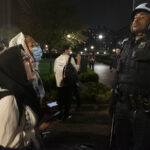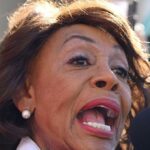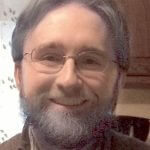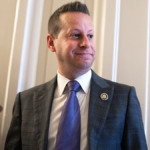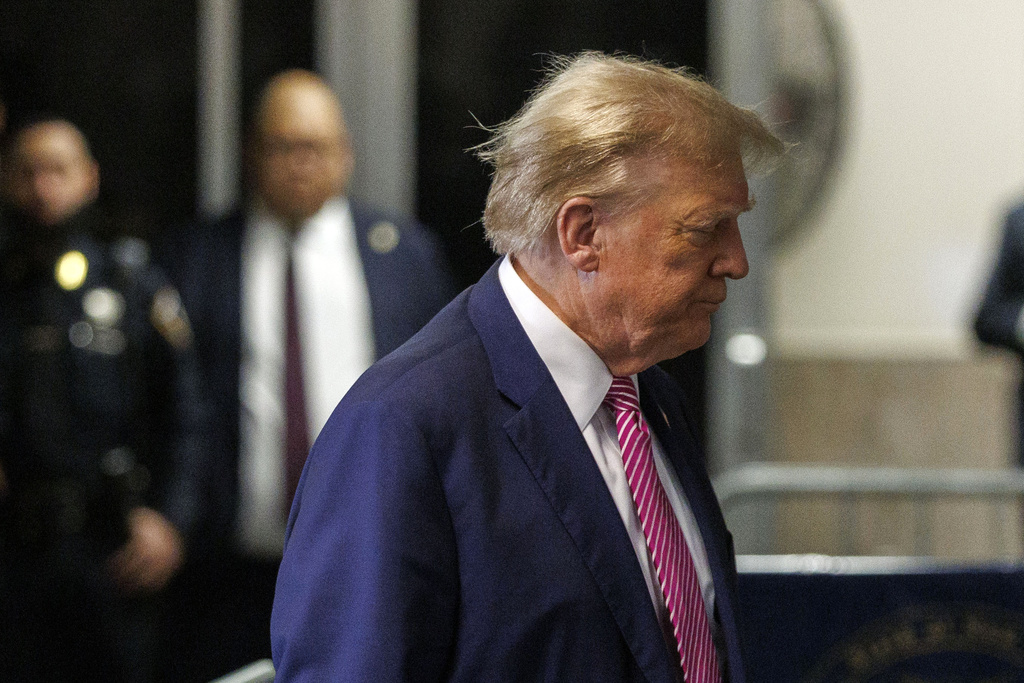
NEW YORK — Donald Trump sat quietly facing forward on Monday as prosecutors recited the 34-count hush money indictment to a jury in the first criminal trial against a former president.
A 12-person jury in Manhattan listened to the opening statements by prosecutor Matthew Colangelo, who used his time to lay out a comprehensive narrative about the facts of the case. He focused much of his opening statement on describing the role of Michael Cohen, Trump’s former attorney and fixer, saying his job was “to take care of problems for the defendant.”

Colangelo said Cohen used his own money to scrounge up $130,000 to pay adult film star Stormy Daniels for her silence about an alleged sexual encounter with Trump in 2006. Prosecutors say that marked an act of deceit against voters in the final days of the 2016 campaign.
Trump has pleaded not guilty to 34 counts of falsification of business records, a Class E felony brought by Manhattan District Attorney Alvin Bragg, a Democrat. The former president has denied having any sexual encounters with Daniels.
Colangelo continued into the 11:00 a.m. hour on a longer narrative journey that explained to jurors how Trump’s established relationship with the major media mogul overseeing the National Enquirer was used to fizzle out negative press about the then-2016 presidential candidate.
The first witness Bragg’s office plans to call is David Pecker, the former CEO of tabloid publisher American Media, or AMI.
Bragg’s office said Pecker was part of a broader “catch and kill” scheme concocted by Trump and Cohen. Pecker would take large cash sums to hide possibly damaging information about Trump before the November 2016 election, prosecutors say.
“You’ll even hear Mr. Trump suggest in his own voice, ‘pay him in cash,’” Colangelo said, facing the jury intently.
Cohen is expected to be the prosecutors’ star witness because his payments to the porn star are at the very center of Bragg’s indictment.
The district attorney’s indictment alleged Trump hid the true nature of the payments in his internal records when the Trump Organization reimbursed Cohen, who, in 2018, pleaded guilty to charges of concealing more than $4 million in unreported income and thousands of dollars in unlawful campaign contributions.
Prosecutors will utilize Pecker’s testimony to help corroborate much of what the former attorney is expected to testify about, and they also have plans to invite Daniels to the stand. Trump has repeatedly said he would testify in his own defense.
Others who are expected to testify include Karen McDougal, a former Playboy model who was paid $150,000 in 2016 by Pecker’s company for the rights to her story about an alleged 10-month affair with Trump in the mid-2000s. Trump has denied her claims.
Colangelo said Pecker would testify that $150,000 was more than the National Enquirer would typically have paid for such a deal and that Pecker had trouble being reimbursed for it. He also said Pecker would testify that he spoke to Trump about it.
Hope Hicks, Trump’s former White House communications director, is also expected to testify. She spoke with Trump by phone during an effort to keep Daniels’s allegations out of the press following the leak of the Access Hollywood tape three weeks before the 2016 election. The tape, which is from 2005, revealed Trump boasting about grabbing women “by the p****.”
Colangelo even recited the entirety of Trump’s quoted transcript from the 2005 tape during opening arguments on Monday.
“Donald Trump is guilty of falsifying 34 counts of business records in the first degree,” Colangelo said toward the end of his opening arguments.
To convict Trump of a felony, Bragg must show that he not only falsified or caused business records to be entered falsely, which would be a misdemeanor, but that he did so to conceal another crime. Trump is not charged with an additional crime.
But the problem for prosecutors, which Trump has already made loud and clear, is that Cohen appears to have lied to multiple branches of the federal government in just the past few years.
Trump attorney Todd Blanche opened his arguments by stating the 34 counts against Trump are “just 34 pieces of paper.” When Blanche stood up, Trump’s focus shifted from the bench to his attorney.
“None of this was a crime,” Blanche said, adding, “I have a spoiler alert: There’s nothing wrong with trying to influence the election. It’s called democracy.”
At one point, prosecutors objected to the way Blanche was characterizing the case. The defense attorney claimed the payment to Daniels was similar to “extortion.” He also said hush money payments were negotiated through lawyers, not the former president.
“There is nothing illegal about opening a nondisclosure agreement,” Blanche said at least twice.
The Trump defense team even used opening arguments to begin blows on Cohen, calling him a convicted felon and perjurer.
Cohen “blamed Trump for all of his problems,” Blanche said.
“You’ll learn that Michael Cohen was obsessed with Donald Trump … even to this day,” Blanche said, pointing to Trump being the central focus of numerous podcasts and television appearances Cohen has participated in.
Before he sat down, Blanche pleaded for the jury to listen intently to the testimony over the next several weeks.
“Use your common sense. We’re New Yorkers. It’s why we’re here,” Blanche said, noting the 12 jurors and six alternates swore they would decide the case impartially.
This case against the former president, the first one in history, is seen by many legal experts as one of the least consequential Trump prosecutions.
CLICK HERE TO READ MORE FROM THE WASHINGTON EXAMINER
While the charges he faces can result in prison time if convicted, a guilty verdict wouldn’t bar him from taking office, and first-time offenses typically don’t result in prison sentences.
Blanche’s opening arguments were still ongoing as of 11:45 a.m. Justice Juan Merchan said the court would conclude its work for the day by 12:30 p.m. on Monday.
